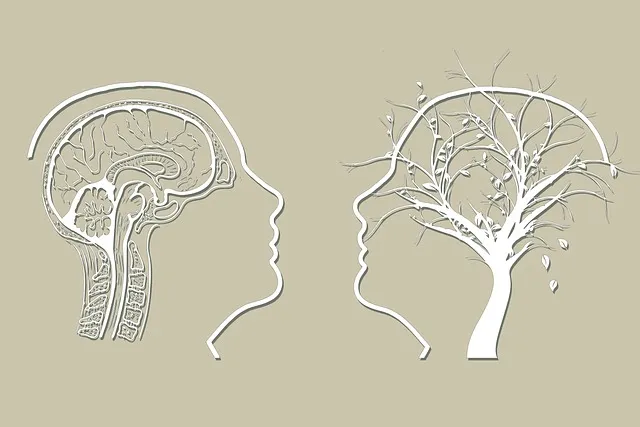Kaiser Permanente's comprehensive training programs in Aurora have revolutionized public health awareness, focusing on mental well-being and trauma support. These innovative initiatives educate communities, reduce stigma, and empower individuals with self-care tools and crisis intervention skills. By combining emotional healing techniques with clinical knowledge, the programs foster supportive environments, encouraging early mental health interventions and improved quality of life for all residents. Through effective evaluation methods, Kaiser Permanente ensures these strategies have a lasting impact on both healthcare providers and the broader community.
Public awareness campaigns are powerful tools for promoting health and safety, shaping behaviors, and fostering community engagement. This article explores their critical role in public health initiatives, highlighting successful examples like Kaiser Permanente’s training programs and Aurora’s community-focused strategies. We delve into understanding campaign impact, measuring success, and the significance of tailored communication. Learn from these case studies to enhance your own awareness efforts, particularly in urban centers like Aurora.
- Understanding Public Awareness Campaigns: Their Role and Impact
- Kaiser Permanente Training Programs: A Case Study in Effective Communication
- Integrating Community Engagement for Maximum Reach in Aurora
- Measuring Success: Evaluating the Effectiveness of Public Health Initiatives
Understanding Public Awareness Campaigns: Their Role and Impact

Public awareness campaigns play a pivotal role in shaping societal perceptions and behaviors, especially regarding health and well-being. At their core, these initiatives aim to educate and inform the public about various issues, fostering a deeper understanding and encouraging positive actions. One notable example is the work of Kaiser Permanente training programs in Aurora, Colorado. These programs have successfully utilized awareness campaigns to promote mental health literacy among community members, with a focus on trauma support services.
By integrating Self-Awareness Exercises and Risk Management Planning for Mental Health Professionals, these campaigns not only empower individuals but also create a more supportive environment. The impact of such initiatives is profound; they can reduce stigma associated with mental health issues, encourage early intervention, and ultimately lead to better outcomes for those seeking support. Understanding the power of public awareness lies in its ability to normalize conversations, making way for more effective services and improved quality of life for all.
Kaiser Permanente Training Programs: A Case Study in Effective Communication

Kaiser Permanente Training Programs in Aurora have emerged as a beacon of effective communication strategies, demonstrating how impactful learning initiatives can be when tailored to both healthcare professionals and the broader community. These programs go beyond traditional workshops by incorporating innovative techniques that foster emotional healing processes and promote emotional well-being. Through interactive sessions, participants gain invaluable insights into crisis intervention guidance, enabling them to handle sensitive situations with enhanced empathy and skill.
By focusing on these holistic approaches, Kaiser Permanente has created a supportive learning environment that not only educates but also inspires. The programs’ success lies in their ability to bridge the gap between clinical knowledge and emotional support, ensuring healthcare providers are equipped to address not just physical health but also the intricate aspects of human resilience and recovery.
Integrating Community Engagement for Maximum Reach in Aurora

In Aurora, integrating community engagement into public awareness campaigns has proven to be a game-changer. Kaiser Permanente training programs have played a pivotal role in fostering this connection, especially when it comes to addressing critical issues like burnout prevention strategies for healthcare providers. By involving local communities directly, these initiatives ensure that messages resonate deeply with folks, fostering a sense of shared responsibility and well-being.
This approach is particularly effective in promoting trauma support services and self-esteem improvement. Engaging community members helps to dispel misconceptions and build trust, ultimately leading to wider adoption of healthy practices. The result is a more robust network of support, where residents feel empowered to take charge of their mental and emotional health, just as healthcare providers do through dedicated training programs like those offered by Kaiser Permanente in Aurora.
Measuring Success: Evaluating the Effectiveness of Public Health Initiatives

Evaluating the success of public health initiatives is a multifaceted process that goes beyond mere participation rates. It involves assessing the long-term impact on both individual and community levels, ensuring that the desired behavioral changes and improved health outcomes are sustained. Organizations like Kaiser Permanente have recognized the importance of comprehensive evaluation in their training programs, such as those focused on Compassion Cultivation Practices, to gauge the effectiveness of initiatives like Community Outreach Program Implementations and Social Skills Training.
By employing a mix of qualitative and quantitative methods, including surveys, interviews, and data analysis, public health professionals can identify what works, what needs improvement, and which strategies have the most profound impact. This continuous evaluation process is crucial for refining programs, ensuring resources are allocated efficiently, and ultimately enhancing the overall well-being of communities, as exemplified by Aurora’s successful integration of various training initiatives into their public health framework.
Public awareness campaigns, as exemplified by Kaiser Permanente’s training programs in Aurora and highlighted in this article, play a pivotal role in fostering community health and well-being. By integrating effective communication strategies and engaging local communities, these initiatives can lead to significant positive impacts. The success of such campaigns lies in their ability to educate, inspire action, and ultimately drive measurable improvements in public health. This case study demonstrates that when tailored to specific needs and cultures, awareness programs can be powerful tools for creating lasting change.






